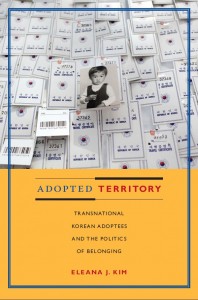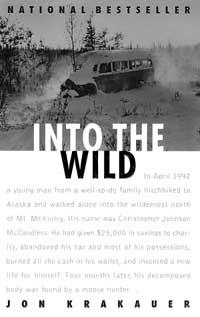
_Where Men Win Glory: The Odyssey of Pat Tillman_ by Jon Krakauer
I have realized that it is possible that I am reading to avoid the myriad of other tasks that I should be doing to be more productive towards completing research and professional goals. However, I also consider reading a useful and productive endeavor even if it’s not directly impacting what I should technically be doing. 🙂
In any case, after seeing Jon Krakauer on The Daily Show many months ago promoting his latest book, I thought I’d go ahead and round off my Krakauer series of readings. This book follows the story of Pat Tillman, his life and death, and the government’s role in the media and cover-up of the truth.
I remember when I first heard Pat Tillman’s name because the news was so shocked that an NFL player had decided to enlist in the Army to fight during the Iraq war. Most men of our age look for ways to avoid having to go into the military and so it was a surprise to hear that someone making NFL money would give that up to fight a war that I think our generation were not sure was worth fighting despite the 9/11 attacks and aftermath. However, despite the media hype, I just took the man to be someone who felt an obligation to protect and serve for his country, which is something I’m in awe of and respect since I’m not sure where my position on that stands.
Some months later, I also recall the media making a big fuss over the announcement that this same Pat Tillman had been killed in battle. It seemed like a shame, but to someone who was no longer interested and desensitized to all the BS going on about the war, I just pushed it aside as another meaningless loss in a war that we shouldn’t have continued forth with to the level that it went. Still, I was overseas and it was easy to ignore everything.
For me, that was the end of my knowledge and interest in the Pat Tillman story and a bulk of any thoughts I put towards the war; sad but true. 🙁 However, this book really started to bring my attention to just how crazy the whole shenanigans were. The military tried to cover up the truth that Tillman had unfortunately been killed by friendly fire due to poor communications and leadership. It’s amazing to me that people still have not learned that lying and cover ups never ever are successful when it comes to the life of another person and on a scale such as a WAR!
Anyway, as I read, I felt both anger and annoyance at the military and people in leadership positions who think only about saving their own asses rather than what is morally and ethically right. It continued to push me on the side of thinking war is truly a pointless endeavor when the target and goals are not clear or are about something more than the basic protection of our country. I felt sadness for the Tillman family in not only losing a special member of their family, but also for the inability to mourn peacefully as they struggled to find out the truth because of conflicting stories and information.
So, now part of me is interested in reading more about the war in Iraq and Afghanistan, but part of me can’t bear the thought of finding out more lies and truths about decisions and actions made that I probably disagree with. I’ve been watching the TV series of The Band of Brothers and The Pacific on the two fronts of World War II. In these shows I can see both the need to fight for the country and the senselessness of killing other men. Still, it seems that there is honor and pride in these battles despite the horrors and trauma. I’m not getting that sense from our more recent wars, but then again the enemy is different and the world has changed…..
Anyway, I think I need to stop reading for a while to focus on more academic pursuits and to give my head a wee break. Though, I may have to return to some mindless fiction eventually! 😀
More to come later,
-T














